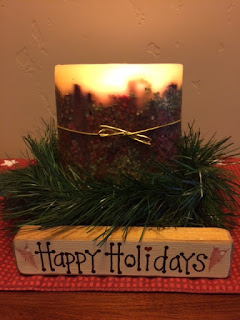 |
| To all a Merry and Blessed Holiday Season |
The Challenge is in the Details
Begin your series by creating worksheets to keep track of the details. This will help avoid the pitfalls of time spent having to flip back to previous books for small (or large) details that may have escaped you. Preparing your series worksheets isn't much different than keeping track of the details for each of your writing projects. To accomplish this for each individual book project:
- Keep a separate notebook for each book.
- In each notebook, preferably during the first stage, create a chart of the following important information. This will take time but will be worth it. The information will be at your fingertips to tweak as you go along, and also to use for school visits, your blog, etc.
- Age group
- Genre
- Verb tense
- Point of View
- Mood or tone
- Setting
- Time span
- Character list, role played in your story and profiles
- Theme
- List of Scenes or contents of chapters
- Concept sentence
- Why you wrote your book
- Where your idea came from
- Research: what you researched, what file it's kept in, sources you've cited
- Books by other authors that are similar to your book or that you used as models
- A list of your favorite authors, your favorite books and the authors' bios
Keep a separate section or separate notebook if you've created a series. A series organizational chart can contain information similar to the charts for your books.
- Series title
- Genre
- List of characters and how this list changes from book to book
- How the books tie together
- How your characters grow and change as the series progresses
- Series timeline
- Settings
- Keep track of the series books you've read and notes you've taken
- Most important: write down how your series will end
- Also: keep track of special information pertaining to your story, such as in my MG mystery, the chapter(s) and page numbers of when the ghost appears.
One of the most fun parts of writing a series for me has been reading popular and well-loved series by other authors.
- Take notes on the books you've read and on how the series is connected.
- Note who the mc is and how the mc changes and grows
- Are there new characters introduced? Which ones stay the same in each book?
When I first realized that two of my projects could become series I was intimidated. But, after studying the nature of series writing I've come to realize that planning is key, as it is for the creation of any book, either right from the start or the plans emerge sometime during the revision stage. I plan to avoid as many pitfalls as possible by following the advice of authors who have shared their expertise and experiences. I hope this information will help you, too.
Treasure Chest of Sources on Series Writing
http://www.thecreativepenn.com/2011/11/02/writing-a-series-continuation-issues/; http://www.nownovel.com/blog/how-to-write-book-series/ http://www.nownovel.com/blog/how-to-write-a-series-mistakes/http://www.nownovel.com/blog/six-secrets-to-writing-a-series/;http://www.writersdigest.com/editor-blogs/guide-to-literary-agents/some-tips-for-writing-a-series; Writing the Fiction Series: The Complete Guide for Novels and Novellas, by Karen S. Wiesner
Photo by Linda Wilson





